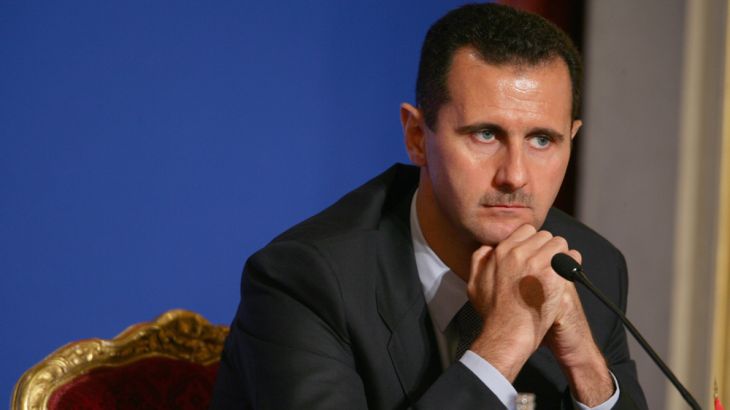
Has Bashar al-Assad won the war in Syria?
We ask if al-Assad and his allies can claim victory in Syria, and author Johann Hari discusses depression.
In this week’s UpFront, Syrian journalist Rami Jarrah, senior fellow at the Brookings Institute Mara Karlin and Alexey Khlebnikov of the Russian International Affairs Council debate whether President Bashar al-Assad has won the war in Syria.
And in a special interview, we ask author Johann Hari about his latest book challenging our understanding of depression and anxiety.
Keep reading
list of 4 itemsThe Take: Thirteen years later, has the world forgotten Syria?
Jordan army kills drug runners at Syria border amid soaring Captagon trade
Assad arrest warrant: ‘Hope and pain’ for Syrian chemical attack survivors
Arena: Syria – Who is to blame for the war?
Al-Assad continues to tighten his grip over Syria as more opposition-held cities fall to the government and its allies.
After seven years of conflict, the human cost of the war in Syria has been significant. Latest estimates from the Syrian Observatory of Human Rights (SOHR) and the United Nations refugee agency, UNHCR, suggest five million Syrians have fled the country and hundreds of thousands have been killed in a conflict that has involved many foreign actors, including Russia, the United States and Iran.
Alexey Khlebnikov of the Russian International Affairs Council says Russia’s intervention has been a success in its goal of supporting the Syrian regime, and to “eliminate the credibility of terrorists”.
Since joining the war in 2015, Russia’s military has helped al-Assad’s government reclaim approximately 85 percent of territories held by opposition groups, according to Russian military officials speaking to reporters in September 2017.
Organisations such as Human Rights Watch (HRW) and Amnesty International have said that all sides in the Syrian conflict have committed human rights atrocities, but that the Syrian government is responsible for the vast majority.
When asked if al-Assad and his Russian and Iranian supporters, can now claim victory, Syrian journalist Rami Jarrah says “if we were saying that winning the game was meeting the aspirations of the people of Syria, then that wouldn’t be the case”.
Reports of substantial civilian casualties have led many to criticise Russia’s conduct in the war, most recently its actions in Idlib and Eastern Ghouta. Top UN human rights officials have said that the indiscriminate shelling may constitute war crimes.
“Civilian casualties may be part and parcel of its strategy,” says Karlin, who served as a senior Pentagon official under former US President Barack Obama. “Russia’s military has tried to use Syria as its tactical and operational battleground to test its weapons,” she adds.
Khlebnikov rejects this. “Russia, since its military involvement, simultaneously started to allow this reconciliation process within Syria,” he says, pointing to the negotiations taking place in the Kazakh capital Astana is a new means by which field commanders have been able to sit together and talk.
Special Interview: Depression and anxiety – Have we gotten it wrong?
For 13 years, author Johann Hari says he took the maximum possible dose of antidepressants. In Lost Connections: Uncovering the Real Cause of Depression – and the Unexpected Solutions, Hari draws from his personal experience to challenge how depression and anxiety are understood in society, particularly in the West.
“There are plenty of people who were, like me, taking chemical antidepressants and they didn’t help,” says Hari. “This isn’t an argument for or against chemical antidepressants; it’s an argument for expanding what we think of as an antidepressant.”
Spending more time in nature, enjoying work and building lasting relationships are some of the cultural and societal solutions Hari says need to be considered as part of treatment for depression and anxiety.
“Nobody denies that there are social and psychological causes of depression and anxiety,” says Hari, “but that has not informed most of how we respond to these problems.”
“I think part of the cruellest thing we’ve done is we’ve put the onus for solving this problem onto depressed and anxious people,” says Hari. “But because this is primarily a social crisis, we need social solutions.”